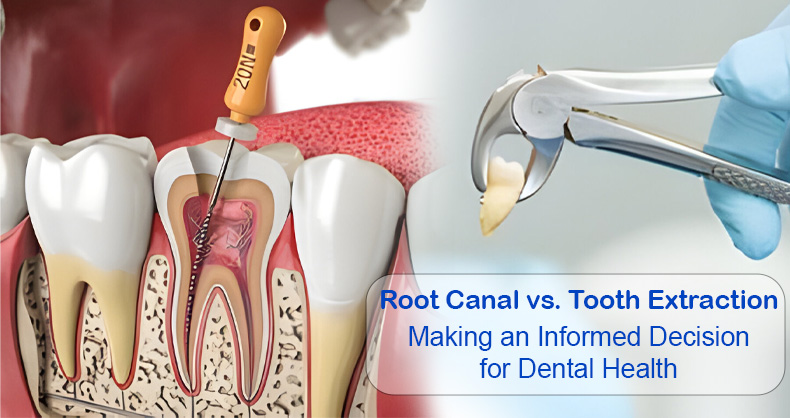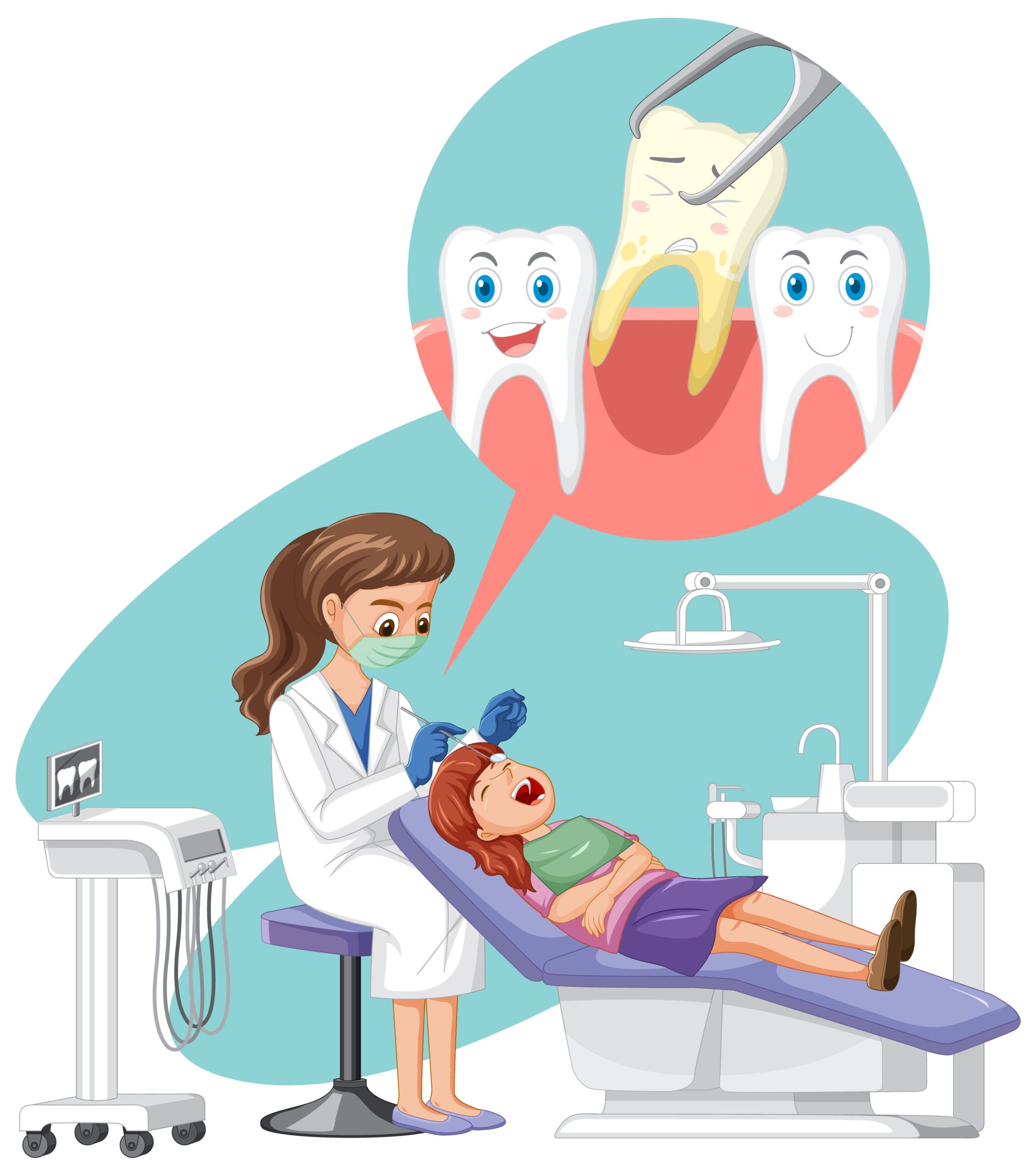
When faced with severe dental problems like extensive decay or damage, the choice between a root canal treatment and tooth extraction can feel overwhelming. It’s a decision that needs careful consideration of various factors, from the tooth’s condition to long-term oral health implications. ‘
In this guide, we’ll delve into the nuances of these two common dental procedures, exploring their differences in approach, outcomes, and considerations. By understanding the distinctions between root canal therapy and tooth extraction, you’ll be better equipped to make an informed decision and undergo proper treatment at the best dental care hospital, aligning with your dental needs.
Whether you’re currently grappling with dental issues or simply seeking preventive knowledge for the future, this comprehensive exploration will provide you with the insights and clarity necessary to navigate this dental crossroads confidently. So, let’s dive in and uncover everything you need to know about choosing between a root canal and tooth extraction for optimal dental health.
Understanding Root Canal Treatment
RCT is a procedure undertaken to save a tooth that is decayed, infected, or damaged. This process involves removing the infected pulp from the tooth’s root canals, followed by thorough cleaning, and disinfection, and finally, filling and sealing the canals. Root canal treatment is typically advised when it is possible to preserve the tooth and maintain its functional capability.
Advantages of Root Canal Treatment:
- Preservation of the Natural Tooth: The treatment helps retain the natural tooth, thereby maintaining its appearance, function, and structural stability.
- Restoration of Oral Health: By removing the infected pulp and sealing the canals, root canal treatment procedure eradicates the source of infection, preventing further oral complications.
- Alleviation of Discomfort: It effectively decreases the pain and discomfort related to the infected or damaged tooth, thus restoring oral well-being.
Understanding Tooth Extraction
Tooth extraction involves removing the entire damaged or infected tooth from its socket within the jawbone. This option is typically chosen when a tooth is severely decayed or when there is a risk of infection spreading to neighboring teeth or the jawbone.
Advantages of Tooth Extraction:
- Eradication of Infection and Pain: Extracting a severely infected tooth promptly relieves pain and prevents the spread of infection.
- Provision of Space for Replacement: In certain instances, tooth extraction may be necessary to create room for a dental implant or other tooth replacement options.
- Addressing Crowding Concerns: Your orthodontist may also recommend tooth extraction to address overcrowding issues or facilitate proper alignment.
Making the Decision: Root Canal vs Tooth Extraction
When choosing between a root canal and tooth extraction, several factors warrant consideration:
Extent of Damage
- Root canal therapy is typically preferable for teeth with restorable structures.
- Extraction becomes necessary if the tooth is severely damaged beyond repair.
Long-Term Oral Health Goals
- Discuss your oral health goals and preferences with your dentist.
- Evaluate factors such as cost, time commitment, and potential impact on adjacent teeth.
Procedure Complexity
- Root canal treatments and tooth extractions demand professional expertise but differ in complexity.
- A root canal involves multiple steps, including pulp removal, cleaning, filling, sealing, and crown restoration.
- Tooth extraction ranges from straightforward removal to surgical extraction for complicated cases.
Pain and Discomfort
- Modern dentistry ensures minimal discomfort with local anesthesia for both procedures.
- Post-procedure discomfort, swelling, or mild pain is temporary and manageable with painkillers.
- Tooth extraction may cause slightly more discomfort initially due to the physical void left behind.
Recovery Time
- Root canal recovery is typically faster, often just a few days, as discomfort subsides post-sealing.
- Tooth extraction recovery spans one to two weeks as the socket heals.
- Activities like strenuous exercise and smoking should be avoided post-extraction to aid healing.
Cost Comparison
- Costs vary based on complexity, geography, and insurance coverage.
- Root canals may be pricier upfront due to procedure complexity and crown requirements.
- Tooth extractions are usually less costly initially, but consider replacement options’ long-term costs.
Consulting your dentist and weighing these factors will guide you in making a balanced decision that matches your dental health goals and financial considerations.
Conclusion
The decision between a root canal and tooth extraction is not one to be taken lightly. It requires careful consideration of various factors. By understanding the nuances of these two common dental procedures and consulting with a qualified dentist, individuals can make informed decisions that prioritize their oral health and overall well-being. Whether opting for root canal therapy to preserve a natural tooth or choosing tooth extraction to address severe damage or infection, the ultimate goal remains the same: to achieve optimal dental health and maintain a confident smile. So, when faced with the dental crossroads, remember to weigh your options thoughtfully and trust in the guidance of your dental care provider to steer you toward the best course of action.
For personalized advice and expert dental care tailored to your needs, schedule a consultation with Gnathos Dental today. Let us help you navigate your dental journey with confidence and clarity. Your smile deserves the best care possible.
- Tags:
- Root Canal
- Tooth Extraction


